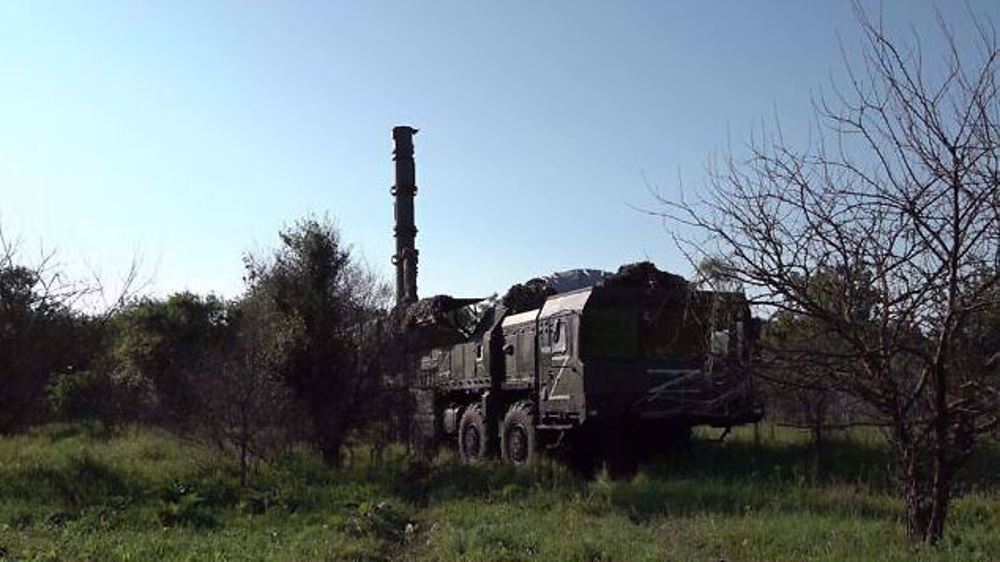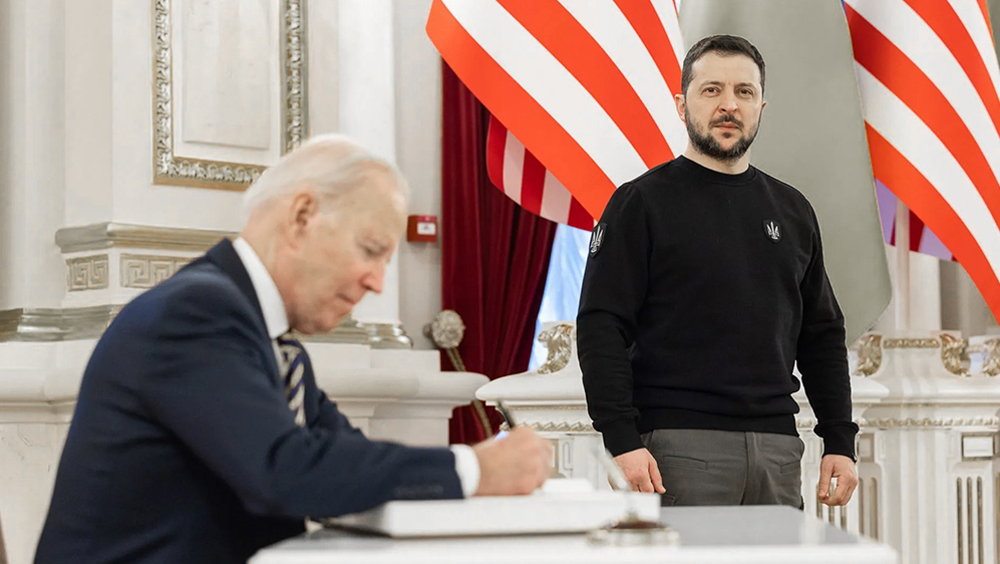No trace of poison found in Navalny tests: Russian doctor
A senior doctor in a Russian hospital says no trace of any poison has been found in tests conducted on Alexei Navalny, an opposition figure, who is reportedly in serious condition in a hospital in the Siberian city of Omsk.
Navalny lost consciousness on a flight from Tomsk to Moscow on Thursday morning.
The plane had to make an emergency landing due to a sudden deterioration of his health, said his spokeswoman Kira Yarmysh who claimed, “Alexei has toxic poisoning."
The deputy head of a hospital in Siberia, Anatoly Kalinichenko, however, said in a briefing on Friday that no poison had been found in tests conducted on Navalny.

He said that the hospital already had a full diagnosis of Navalny’s condition, but he could not disclose it yet.
The chief surgeon at the hospital, Alexander Murakhovsky, also said on Friday that Navalny's condition had improved a little overnight, but that he was still unstable.
He said that moving him would put his life at risk because he was still in a coma and his condition was unstable.
Navalny’s team, however, accused Moscow of ordering a ban on transporting him in “an attempt on his life.”
His spokeswoman claimed that doctors had previously consented to his being moved, but had withheld their agreement at the last minute.
"This decision, of course, was not made by them but by the Kremlin," Yarmysh said.
Spokesperson for Russian President Vladimir Putin Dmitry Peskov said that Kremlin would help move Navalny abroad if necessary and wished him a "speedy recovery.”
Peskov said there was no evidence yet to back claims that Navalny had been poisoned, adding that “we are reading this information.”
The dispute over moving Navalny broke out after an air ambulance was sent to take him to Germany for possible treatment.
While Russia vehemently denies any foul play, there is speculation whether certain actors might have been trying to implicate Moscow and use it as a lever of pressure.
The allegation is the latest in a series of accusations against Moscow that includes the 2018 poisoning of Sergei Skripal, a former double spy, and his daughter in Salisbury in southern England.
Russia has repeatedly denied any involvement in the alleged attack which left Skripal unconscious for weeks.
Putin said back then that the Skripals case benefited London more than Moscow.
West warns Russia over Navalny’s ‘poisoning’
The West has reacted to the incident with the White House national security adviser ,Robert O’Brien, saying that the news was “extraordinarily concerning” and could affect US-Russia relations.
“He’s a very courageous man. He is a very courageous politician to have stood up to Putin inside Russia, and our thoughts and our prayers are with him and his family,” O’Brien said.
“If the Russians were behind this ... it’s something that we’re going to factor into how we deal with the Russians going forward,” he added.
German chancellor Angela Merkel and French President Emmanuel Macron also expressed concern over Navalny’s condition and said he could receive treatment in Germany or France.
“I hope that he can recover and naturally whether it be in France or in Germany he can receive from us all the help and medical support needed,” Merkel said in a joint news conference with Macron.
The UN human rights office also described Navalny case as "very worrying," saying that he must receive all necessary medical treatment,
"Reports of what has happened to Alexei Navalny are very concerning and very worrying, said UN human rights spokesman Liz Throssell. “It is important that he get all adequate care that he needs to be able to make a recovery."
Diplomat discourages recourse to pressure, intimidation, confrontation against Iran
UN: 2024 deadliest year for aid workers amid genocide in Gaza
Gaza health official warns of hospital shutdowns within 48 hours
Israel kills 5 more paramedics in southern Lebanon: Health ministry
Iran to launch ‘new, advanced’ centrifuges in response to IAEA resolution: AEOI
Yemen fires hypersonic missile at Israeli airbase
VIDEO | New Delhi chokes under toxic smog as air quality remains at hazardous levels
VIDEO | Press TV's news headlines













 This makes it easy to access the Press TV website
This makes it easy to access the Press TV website